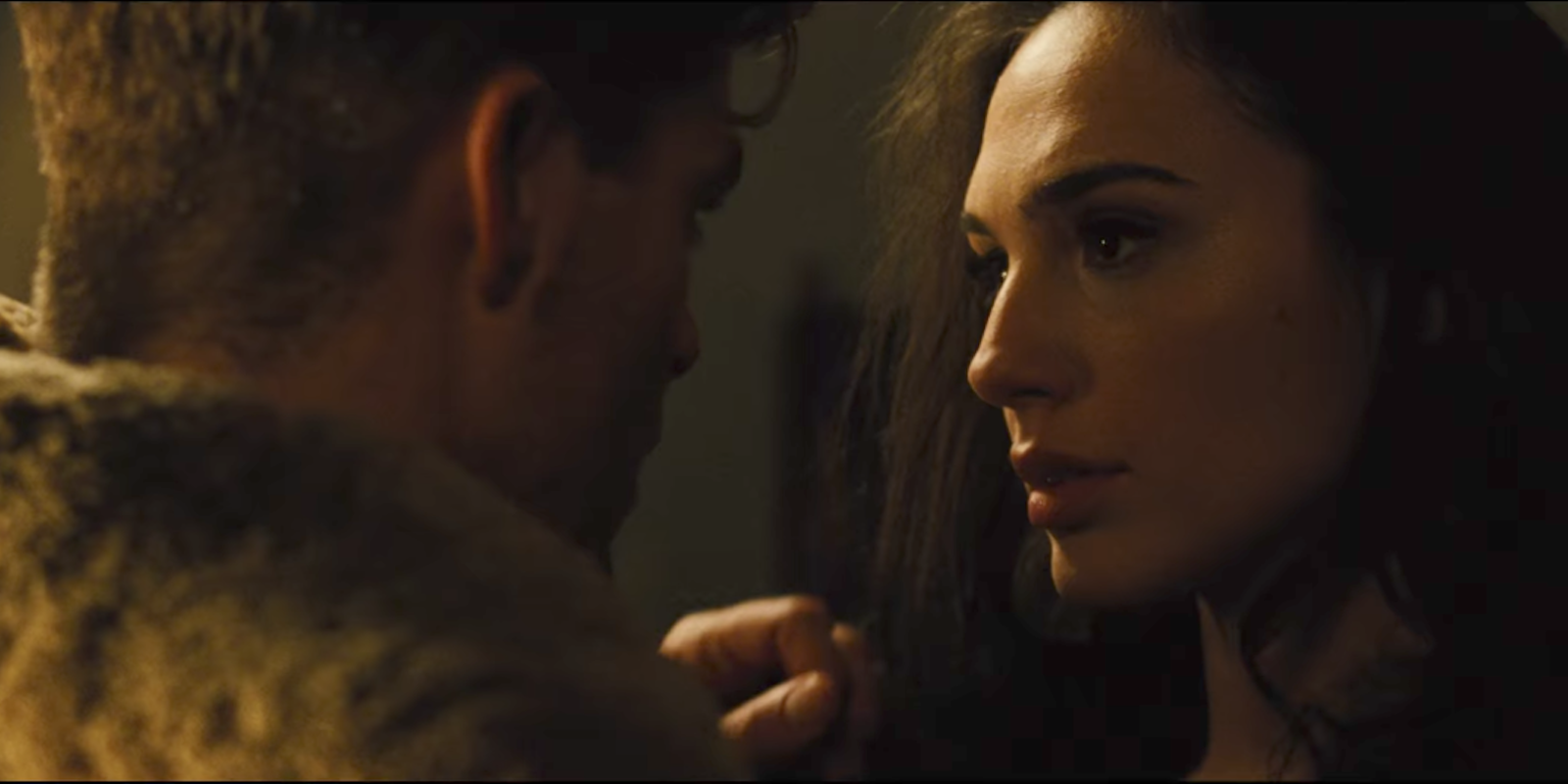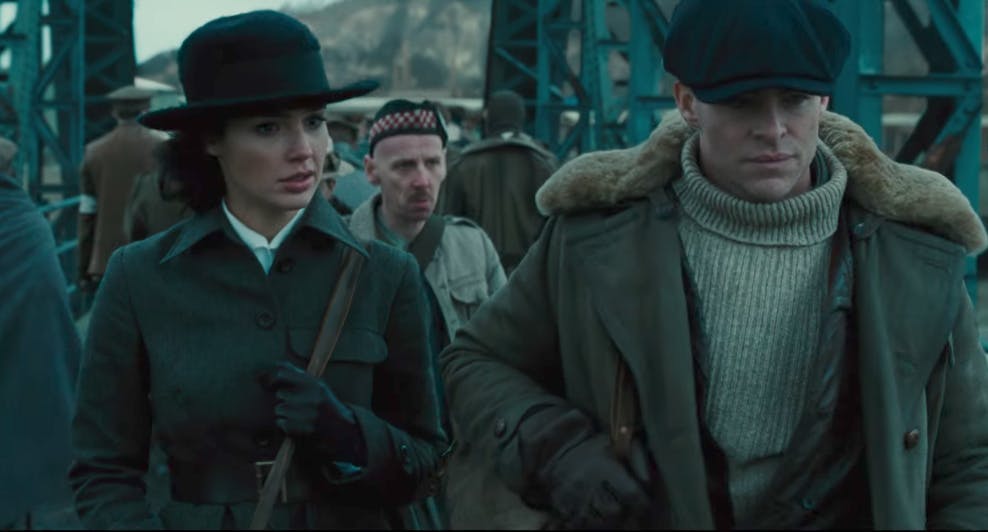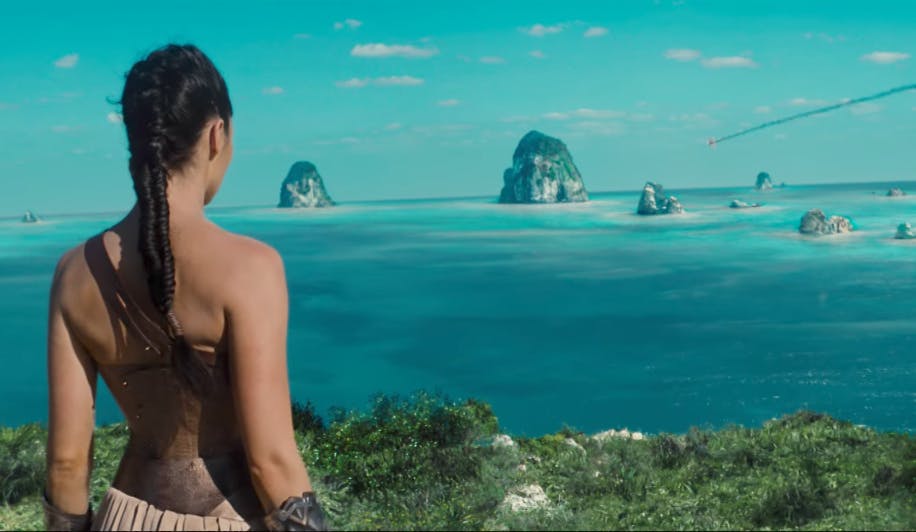It’s only fitting that a woman who waited 14 years to make another movie got the chance to bring Wonder Woman to the big screen after 76 years.
Diana Prince, the demi-goddess of Themyscira who saves the world from Nazis, first made her comics debut back in October 1941’s All Star Comics #8. It was so popular with readers that she was given her own solo series just a year later. But the girl with the golden lasso would have to sit on the sidelines while all her male counterparts got a shot at Hollywood. George Reeves donned Kal-El’s cape in 1958’s The Adventures of Superman, and Adam West would become cinema’s first Bruce Wayne eight years later.
Although Wonder Woman appeared in the 1973 television show Superfriends, a proper movie spent decades in development hell. At different iterations, the project was supposed to star Sandra Bullock, Beyoncé, Megan Fox, and Cobie Smulders—with directors from George Reeves to Joss Whedon to Nicolas Windig Refn earmarked to direct. All of these efforts stalled.
Wonder Woman, as directed by Patty Jenkins, has finally arrived in theaters. Despite being plagued by bad buzz following an open letter from a disgruntled Warner Bros. employee claiming the film was a “mess,” the finished product has earned rapturous reviews. In fact, its 93 percent score on Rotten Tomatoes (at the time of writing) makes it one of the most critically acclaimed superhero movies ever made—just a hair lower than industry game-changers like The Dark Knight (94 percent) and Iron Man (94 percent). It has actually earned better plaudits than The Avengers, which printed its own money back in 2012.
Jenkins’ own career is an abject lesson in how high Hollywood sets the bar for women, who must achieve Meryl Streep levels of excellence to earn the opportunities reflexively handed to men.
The 45-year-old director has just one other film to her name: 2003’s Monster, the well-reviewed indie starring Charlize Theron as serial killer Aileen Wuornos. Theron won an Oscar for the role, which Roger Ebert claimed was one of the greatest in the history of cinema (he isn’t wrong), but praise for the film largely downplayed the contributions of the woman behind it. The Washington Post called it “an OK movie made nearly great by one great thing,” as if Theron had saved the movie from her director. On Slate David Edelstein gave Monster the backhanded compliment, calling it “doggedly well-meaning.”
Ebert, one of the few to champion the film on its own merits, would call Monster the third-best of the decade. Whether or not you agree with that sentiment, it’s undeniable that the film shows a director with promise—someone who could be nourished into greatness. Men are given those opportunities to improve and hone their gifts all the time.
Dallas Buyers Club, which won Matthew McConaughey an Oscar, was a deeply flawed movie. But in the four years since that film heralded the McConaissance, director Jean-Marc Vallée has directed two movies (Wild, Demolition) and got a TV show (Big Little Lies). An adaptation of Gillian Flynn’s Sharp Objects, on which Vallée serves as a producer, is set to debut later this year. The Blind Side, which won Sandra Bullock her Oscar, is considered one of the worst films ever to be nominated for Best Picture, but its director, John Lee Hancock, has remained busy since. After making Saving Mr. Banks and The Founder, his next project will focus on the Goree All Girl String Band, a group of inmates who formed a country band in the 1940s.
Jenkins, meanwhile, wandered in the desert looking for her chance to make another movie. In an interview with the New York Times, she chalked that up to circumstance. After a film about test pilot Chuck Yeager fell through, Jenkins got married and had a child. Television came calling. She directed episodes of Arrested Development and The Killing, the latter of which earned an Emmy nomination.
Fate may have played a part, but it’s not the whole story. While the movie industry may be incrementally changing in front of the camera, it’s business on the back end. A study from San Diego State University found that 2016 was a record-breaking year for women’s representation in film: Twenty-nine percent of the year’s 100 top-grossing movies had a female lead, a seven percent increase from the year prior. Female directors, though, remain few and far between. To keep working in an industry with almost no opportunities for them, women have to be not just at the level of their male peers. They have to achieve unqualified excellence.
It took Jenkins nearly a decade to show that she can aspire to the level of the greats. She pitched her Wonder Woman vision to Warner Bros. in 2010, and waited years until the studio warmed to the idea.
Now that her passion project has arrived, one must wonder whether the universal acclaim for Wonder Woman will shatter the glass ceiling or help reinforce it. It’s counterintuitive, but so is a Hollywood system that views the success of female-driven hits as “flukes.” When Zack Snyder made the just-OK Man of Steel, he was allowed to direct Batman v Superman, an abysmal trainwreck which threw its studio into crisis mode. Snyder was handed the reins to Justice League anyway. After directing the critically reviled Suicide Squad, David Ayer got a Netflix movie, due out later this year. He’s rumored to be the top choice for a Scarface reboot.
It is truly a relief that Wonder Woman is great. But if mediocrity has never been an impediment to celebrating men, the real progress will come when a movie directed by a woman is allowed to be just OK without it being a comment on an entire gender. Jenkins has finally proven herself an otherworldly talent, but she shouldn’t have to display god-like excellence just to see that she exists at all.




